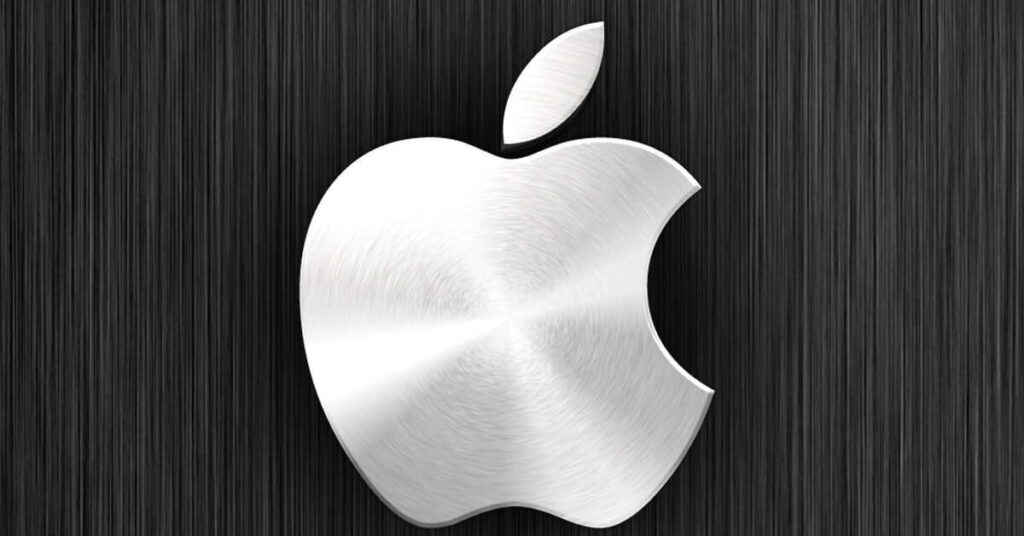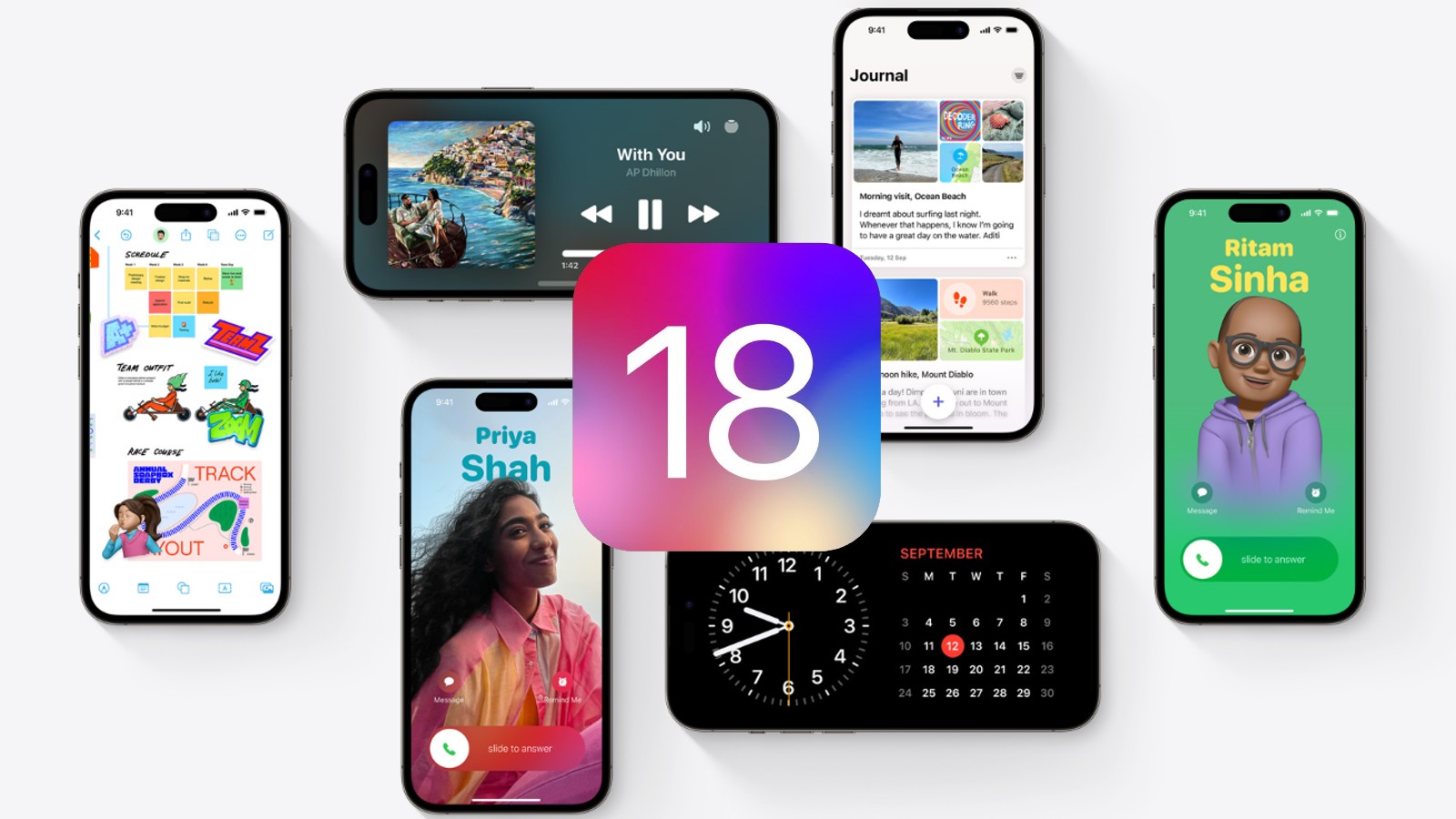“Apple WWDC 2024: Revolutionary iOS 18, AI & Photos”
Introduction
Apple’s Worldwide Developers Conference (WWDC) 2024 keynote was a spectacular event, showcasing a range of groundbreaking innovations, headlined by the much-anticipated iOS 18, remarkable advancements in artificial intelligence (AI), and substantial enhancements to the Photos app. This year’s keynote underscored Apple’s commitment to pushing the boundaries of technology, creating seamless user experiences, and integrating cutting-edge AI into everyday devices. This report delves into the highlights of the keynote, exploring the features and implications of these advancements.
iOS 18: A Leap Forward
Design and Interface
iOS 18 brings a significant overhaul to the user interface, focusing on personalization and ease of use. The new Dynamic Widgets are a standout feature, providing real-time updates and interactions directly from the home screen. Users can customize these widgets with more flexibility, allowing for a tailored user experience that adapts to their daily routines and preferences.
Performance Enhancements
Apple has made substantial improvements in performance with iOS 18. The operating system is optimized for faster app launches, smoother animations, and enhanced battery life. The introduction of the new A18 Bionic chip, which powers the latest iPhones, plays a crucial role in these enhancements. The chip’s advanced architecture and machine learning capabilities ensure that iOS 18 runs efficiently, even with resource-intensive applications.
Privacy and Security
In line with Apple’s long-standing commitment to user privacy, iOS 18 introduces several new features designed to protect user data. The new Privacy Dashboard provides a comprehensive overview of app permissions, allowing users to see how their data is being used. Enhanced encryption protocols and on-device processing for sensitive data further bolster security, ensuring that user information remains protected.
Artificial Intelligence: The Future is Here
Siri: Smarter and More Intuitive
Siri has received a significant upgrade with the integration of advanced AI algorithms. The voice assistant is now capable of understanding context better, enabling more natural and conversational interactions. Siri’s improved machine learning capabilities allow it to anticipate user needs, providing proactive suggestions and performing tasks with minimal user input.
AI-Powered Apps
Apple is leveraging AI to enhance various applications across iOS 18. The new Health app, for instance, uses machine learning to analyze health data and provide personalized insights and recommendations. The Maps app has also been upgraded with AI-powered features, offering more accurate directions, real-time traffic updates, and personalized route suggestions based on user habits.
Developer Tools
To support the development of AI-powered apps, Apple introduced several new tools and frameworks. Core ML 5, the latest version of Apple’s machine learning framework, offers improved performance and flexibility, making it easier for developers to integrate AI into their apps. The introduction of CreateML Pro provides developers with powerful tools to build and train machine learning models directly on their Macs, streamlining the development process.
Photos: Capturing Moments with Intelligence
Enhanced Photo Editing
The Photos app in iOS 18 has been significantly enhanced with AI-driven editing tools. The new Smart Enhance feature uses machine learning to analyze photos and apply adjustments automatically, improving color balance, exposure, and sharpness. Users can also take advantage of advanced editing tools like AI-based object removal, which allows for seamless removal of unwanted elements from photos.
Memory Highlights
The Memories feature has been revamped to offer more personalized and meaningful photo collections. AI algorithms analyze the user’s photo library to create themed collections, highlighting important moments and events. The new Memory Highlights feature uses facial recognition and scene detection to identify key people and locations, creating dynamic and engaging photo montages.
Shared Libraries
iOS 18 introduces Shared Libraries, allowing users to create and share photo libraries with family and friends. AI plays a crucial role in managing these shared libraries, automatically categorizing photos and suggesting additions based on user interactions. Shared Libraries also include collaborative editing features, enabling multiple users to edit and organize photos within the shared space.
Implications and Future Directions
User Experience
The innovations introduced in iOS 18, particularly in AI and Photos, significantly enhance the overall user experience. The integration of AI not only simplifies everyday tasks but also offers a more personalized and intuitive interaction with the device. The advancements in photo editing and organization make it easier for users to manage and enjoy their photo libraries, preserving memories in a meaningful way.
Developer Ecosystem
The new tools and frameworks introduced at WWDC 2024 provide developers with powerful resources to create innovative apps. The enhancements to Core ML and the introduction of CreateML Pro demonstrate Apple’s commitment to supporting the developer community, enabling them to leverage AI to its full potential. This focus on empowering developers is likely to lead to a surge in AI-powered applications, further enriching the iOS ecosystem.
Privacy and Security
Apple’s continued emphasis on privacy and security is evident in the new features introduced in iOS 18. The Privacy Dashboard and enhanced encryption protocols ensure that user data is protected, addressing growing concerns about data privacy in the digital age. By processing sensitive data on-device, Apple minimizes the risk of data breaches and unauthorized access, reinforcing its reputation as a privacy-centric company.
Market Impact
The innovations unveiled at WWDC 2024 position Apple at the forefront of technological advancements in the smartphone industry. The combination of iOS 18’s performance enhancements, AI-driven features, and improved user experience is likely to drive strong demand for the latest iPhones. Additionally, the focus on privacy and security resonates with consumers who are increasingly concerned about data protection, potentially attracting a broader user base.
Developer Ecosystem: Fueling Innovation
Empowering Developers
Apple’s WWDC 2024 keynote placed a significant emphasis on empowering developers. By introducing a range of new tools and frameworks, Apple is enabling developers to create more innovative and powerful applications. The enhancements to Core ML and the introduction of CreateML Pro provide developers with advanced machine learning capabilities, allowing them to build and train sophisticated models directly on their Macs. This streamlines the development process and lowers the barrier to entry for creating AI-powered applications.
Swift and Xcode
Apple continues to invest in its programming language, Swift, and its integrated development environment, Xcode. Swift has been updated with new features that improve performance and ease of use, making it an even more powerful tool for developers. Xcode has also received significant updates, including enhanced debugging tools, better integration with cloud services, and improved support for collaborative development. These updates ensure that developers have the best possible tools to create high-quality apps for the Apple ecosystem.
App Store Improvements
To support the growing community of developers, Apple has announced several improvements to the App Store. These include more robust analytics tools, better support for subscriptions, and enhanced marketing options. Developers can now gain deeper insights into how their apps are performing and how users are interacting with them. The improved subscription support makes it easier for developers to offer ongoing value to their users, while the enhanced marketing options help developers reach a broader audience.
Augmented Reality: Bridging the Physical and Digital Worlds
ARKit 6
Apple’s commitment to augmented reality (AR) is evident in the introduction of ARKit 6. This latest version of Apple’s AR framework brings a host of new features and improvements, making it easier for developers to create immersive AR experiences. ARKit 6 includes better support for object recognition, improved tracking, and enhanced rendering capabilities. These improvements allow developers to create more realistic and engaging AR applications that blur the line between the physical and digital worlds.
Real-World Applications
The potential applications for AR are vast, and Apple highlighted several real-world use cases during the keynote. In education, AR can be used to create interactive and engaging learning experiences, allowing students to explore complex concepts in a hands-on way. In retail, AR can enhance the shopping experience by allowing customers to visualize products in their own homes before making a purchase. In healthcare, AR can assist with medical training and remote consultations, providing doctors with new tools to improve patient care.
Read More:Apple’s Rules Jeopardize Jack Dorsey’s Decentralized App
Apple Ecosystem: Seamless Integration
Continuity and Handoff
One of the hallmarks of the Apple ecosystem is the seamless integration between devices. With iOS 18, Apple has taken this integration to the next level with improved Continuity and Handoff features. Users can now start a task on one device and seamlessly continue it on another, whether it’s composing an email, browsing the web, or editing a document. This level of integration enhances productivity and provides a more cohesive user experience.
Universal Control
Apple has also introduced Universal Control, a feature that allows users to control multiple Apple devices with a single keyboard and mouse. This feature is particularly useful for users who work with multiple devices, such as a MacBook, iPad, and iPhone. With Universal Control, users can effortlessly move their cursor between devices, drag and drop files, and even type on multiple devices simultaneously. This functionality highlights the strength of the Apple ecosystem and its ability to provide a unified user experience.
HomeKit and Smart Home Integration
The smart home market continues to grow, and Apple is expanding its presence in this space with enhancements to HomeKit. The latest updates make it easier to set up and manage smart home devices, with improved support for automation and more robust security features. Apple’s focus on privacy extends to the smart home, ensuring that user data remains secure. The integration of AI into HomeKit allows for smarter and more personalized home automation, creating a more convenient and efficient living environment.
Sustainability and Environmental Initiatives
Carbon Neutral Goals
Apple’s commitment to sustainability was a key theme at WWDC 2024. The company reiterated its goal to become carbon neutral across its entire supply chain by 2030. Apple is investing in renewable energy projects, improving energy efficiency in its products, and working with suppliers to reduce carbon emissions. These efforts are part of Apple’s broader strategy to minimize its environmental impact and lead the tech industry in sustainability.
Recycling and Materials Innovation
Apple is also focused on advancing recycling technologies and using more sustainable materials in its products. The company highlighted its efforts to increase the use of recycled materials, such as aluminum, tin, and rare earth elements, in its devices. Apple’s recycling programs aim to recover valuable materials from old devices and reintroduce them into the supply chain, reducing the need for new raw materials. These initiatives not only help to conserve natural resources but also reduce the environmental impact of Apple’s products.
Product Longevity
Extending the lifespan of its products is another key aspect of Apple’s sustainability strategy. The company is committed to designing products that are durable and can be easily repaired. This includes providing software updates for older devices and offering repair services through its network of authorized service providers. By ensuring that its products remain functional for longer, Apple reduces electronic waste and promotes a more sustainable consumption model.
Accessibility: Technology for Everyone
Enhanced Accessibility Features
Apple continues to lead the industry in making technology accessible to everyone. iOS 18 includes several new accessibility features designed to assist users with disabilities. Voice Control has been improved with more accurate speech recognition and expanded functionality, allowing users to control their devices entirely with their voice. The new AssistiveTouch feature for the Apple Watch enables users with limited mobility to navigate the device using simple hand gestures.
Hearing and Vision Support
Apple has also introduced new features to support users with hearing and vision impairments. The Hearing app on the Apple Watch now includes more detailed audiogram data and enhanced hearing health insights. The Magnifier app on iOS has been updated with advanced image recognition capabilities, providing real-time descriptions of objects and text. These features demonstrate Apple’s commitment to creating inclusive products that empower all users.
Customizable Interfaces
To cater to the diverse needs of its users, Apple has made the interfaces of its devices more customizable. iOS 18 allows users to adjust the size and contrast of text, change the color scheme, and configure other display settings to suit their preferences. These customization options ensure that users can tailor their devices to their individual needs, making technology more accessible and user-friendly.
Conclusion
The WWDC 2024 keynote was a resounding success, showcasing Apple’s unwavering commitment to innovation, user experience, and sustainability. The introduction of iOS 18, with its groundbreaking features in AI, Photos, and augmented reality, sets a new standard for mobile operating systems. The enhancements to developer tools and the seamless integration across the Apple ecosystem empower developers to create more innovative and engaging applications.
Apple’s focus on privacy and security, coupled with its sustainability initiatives, underscores the company’s dedication to creating products that are not only cutting-edge but also responsible. The accessibility features in iOS 18 ensure that technology remains inclusive, providing valuable tools and enhancements for users with disabilities.
As Apple continues to push the boundaries of technology, the innovations unveiled at WWDC 2024 will undoubtedly have a lasting impact on the industry and the way users interact with their devices. With its vision for the future, Apple is poised to lead the tech industry into a new era of intelligent, seamless, and sustainable technology.





